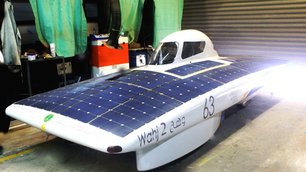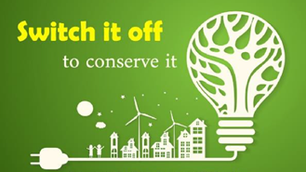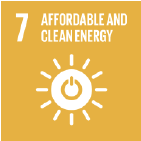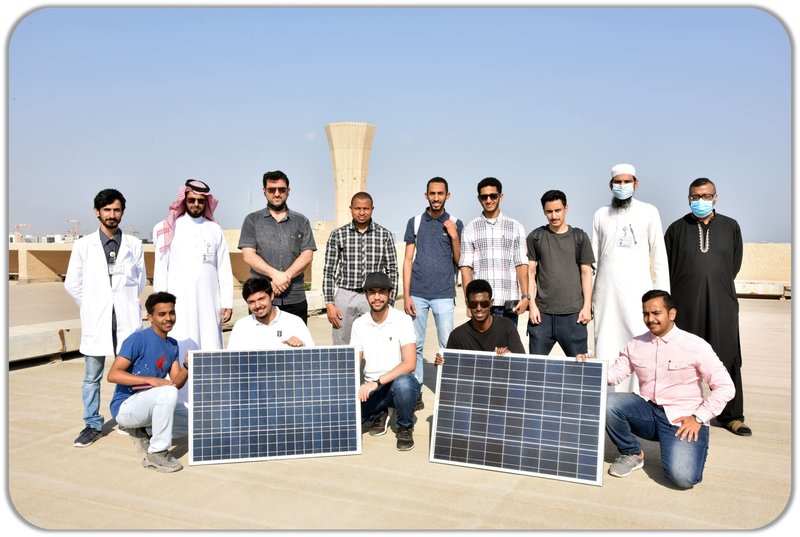


Affordable and Clean Energy
Ensure access to affordable, reliable, sustainable and modern energy for all.
Energy enables human life. KFUPM acknowledges that conserving energy and utilizing modern technologies with minimal negative environmental effects are crucial for maintaining the planet. The Environmental Sustainability Strategy: Energy (ESSE) responds to major challenges and opportunities of energy being available and affordable to all, as well as being clean to ensure that future development can be sustainable. It comprehends actions, processes and policies to address energy consumption, energy efficiency, energy wastage, clean energy technologies, carbon and emission reduction as well as community engagement in the framework of environmental compliance and due diligence.
Environmental Sustainability Strategy: Energy
Measures Towards Affordable and Clean Energy
KFUPM has a policy in place to demonstrate its commitment to the United Nations Sustainable Development Goals (SDGs). This policy (ESSE, page5) applies to all operations and activities of the institution, including new buildings, renovations and upgrades of existing buildings. The Energy policy mandates all new buildings as well as all renovated and upgraded buildings be designed, constructed and equipped in a way that:
- ensures the application of energy efficiency standards and features
- ensures and improves energy conservation
- reduces energy consumption
- utilizes renewable energy sources
KFUPM’s policy entails the Saudi Building Code (SBC) on all works of buildings and construction. In particular, KFUPM is committed to applying the Saudi Green Building Code, which emphasizes energy efficiency.
Furthermore, the university has plans (ESSE, page6) to upgrade existing buildings to higher energy efficiency by enhancing energy efficiency of Air Conditioning, adopting water-cooled instead of air-cooled chillers, incorporating high-efficiency thermal insulation or replacing conventional lighting lamps with LED fixtures.
In addition, KFUPM’s President has instituted an active committee dedicated to driving power-saving initiatives and practices. The Environmental Sustainability Strategy: Energy is an integral part of it and was designed as a plan with the aim to reduce energy consumption by monitoring and reducing energy waste in buildings and facilities as well as outlining goals, objectives and concrete actions that can help save money and protect the environment. Besides, KFUPM created a Climate Action Plan as an important tool for inspiring action.
At KFUPM, we are dedicated to optimizing our energy consumption through the Center of Excellence in Energy Efficiency (CEEE), primarily focusing on enhancing energy efficiency across campus. This is in line with the Kingdom’s Vision 2030, helping to reduce the environmental impact of carbon, while also making a positive economic impact on KSA. The CEEE conducts comprehensive energy audits and initiates various projects aimed at sustainable energy practices. These audits provide valuable insights into our energy usage patterns and help identify areas for improvement.
Energy and The Community
KFUPM is dedicated to a comprehensive approach toward sustainable energy practices and environmental awareness. This commitment is reflected in the published Energy Consumption Report for the period 2018–2022, where the university meticulously analyzed changes in its consumption patterns, identified areas with substantial electricity demand, and outlined policies and efforts to curtail energy usage. The overarching objective is to achieve complete campus sustainability by 2060, with a commitment to utilizing 100% renewable energy.
The university’s commitment extends beyond its campus, reaching into the wider community with initiatives focusing on energy efficiency, outreach, and partnership endeavors.
KFUPM’s Interdisciplinary Research Center for Renewable Energy and Power Systems (IRC-REPS) conducts training and awareness programs - for both university students and external institutions.
Also, KFUPM provides paid/free energy efficiency services for international/local organizations and governments aimed at improving energy efficiency and clean energy (energy efficiency assessments, workshops, research renewable energy options).
KFUPM employees had contributed to the National Communication (NC) in 2005, 2011, 2016, and 2022 and the Biennial Update Report (BUR) addressing studies mainly pertinent to national greenhouse gas emissions inventory, climate change mitigation initiatives, socio-economic impacts of climate change response measures, climate change vulnerability, climate change research, education, training, capacity building, and public awareness.
Additionally, KFUPM supports student start-ups and ideas for renewable and low-carbon technology. Currently, IRC-REPS is actively working on the establishment of a Renewable Energy Technical Incubator (RETI), which aims to support research, development, and innovation (RDI) projects in renewable energy, energy efficiency, and Industry 4.0 applications in the energy sector. It administers five programs to support research at different Technology Readiness Levels, attracting researchers and entrepreneurs from undergraduate students at KFUPM and other universities in KSA to start-up enthusiasts.

Supporting Documents
- Buildings with LED Lightings Installed
- Policy on KFUPM Design Criteria
- Main Contributions in Power Savings Within KFUPM
- Energy Audit Report for Three KFUPM Reverse Osmosis (RO) Plants
- Energy Audit Report for Three KFUPM Reverse Osmosis
- Summary of Training Awareness Program for Energy Institute Award
- Informing and supporting the governments on clean energy and energy-efficient technology policy development
- Fourth National Communication Kingdom of Saudi Arabia
- 50K and KACARE Challenge Awards Article
- Energy Report
- Saudi Building Code (SBC)
- Climate Action Plan
- Center of Excellence in Energy Efficiency (CEEE)
- Renewable Energy Technical Incubator (RETI)
- Sustainable Invesment Strategy
- Energy Voice at KFUPM
- IRC for Sustainable Energy Systems
- KFUPM Campus (Smart and Sustainable Master Plan)
- Energy Audit for TAQA